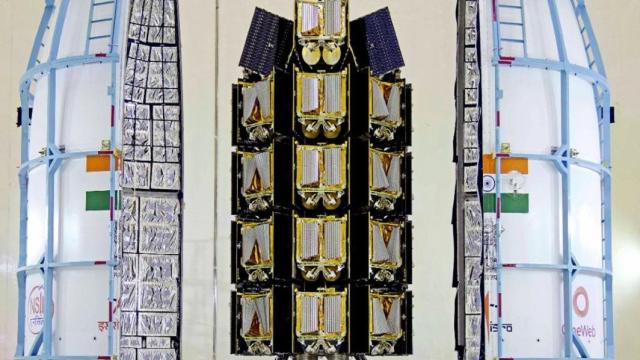British satellite company OneWeb is counting its losses, and not its satellites. Following a fallout with the Russian space agency that led to 36 of its satellites being held captive in Kazakhstan, a company official said that they have “moved on.”
In an interview with Reuters, OneWeb chief executive Neil Masterson said that the company is no longer trying to retrieve its satellites from Russia. “I spend no time thinking about it. We’ve completely moved on,” Masterson is quoted as saying. “There is value getting them back, but I can tell you that I’m not getting them back any time soon.” Yikes, it sounds like something someone might say after a bad breakup to try and convince everyone that they’re fine.
Earlier in January, Russian media reported that Roscosmos may be willing to return the satellites in exchange for parts of its Soyuz rockets that are being held in French Guiana. The space agency was reportedly working out a deal with French aerospace company Arianespace, but Masterson doesn’t seem hopeful that any exchange might be happening soon (but he’s totally fine).
In March 2022, OneWeb was getting ready to launch 36 internet satellites on board a Russian Soyuz rocket as part of a contract with Roscosmos. However, following the invasion of Ukraine, and in a juvenile retaliation against the Western sanctions imposed against Russia, the Russian space agency refused to launch the satellites unless OneWeb agreed to a list of wholly unreasonable demands, including that the British government divest its stake in the company.
The London-based company did not agree, and the deal was off. However, OneWeb’s satellites were kept in Roscosmos’ custody at a storage facility in Baiknour, Kazakhstan. The foiled contract led OneWeb to lose $US229 ($318) million as a result of its satellites not being returned by Russia, as well as the loss of pre-payments.
Following its loss, OneWeb found other alternatives to launch its internet constellation to low Earth orbit. The company signed contracts with its rival SpaceX, as well as India’s space agency, for the six remaining launches required for its first generation satellites.
